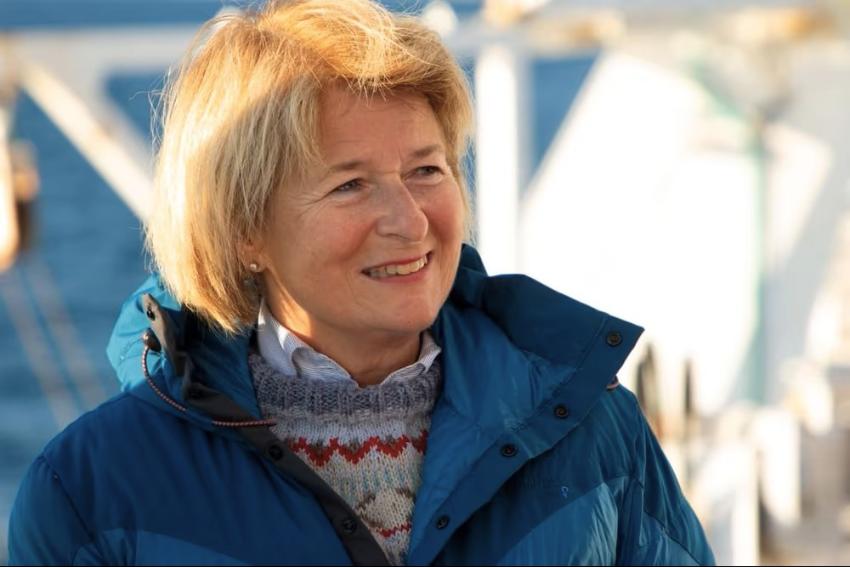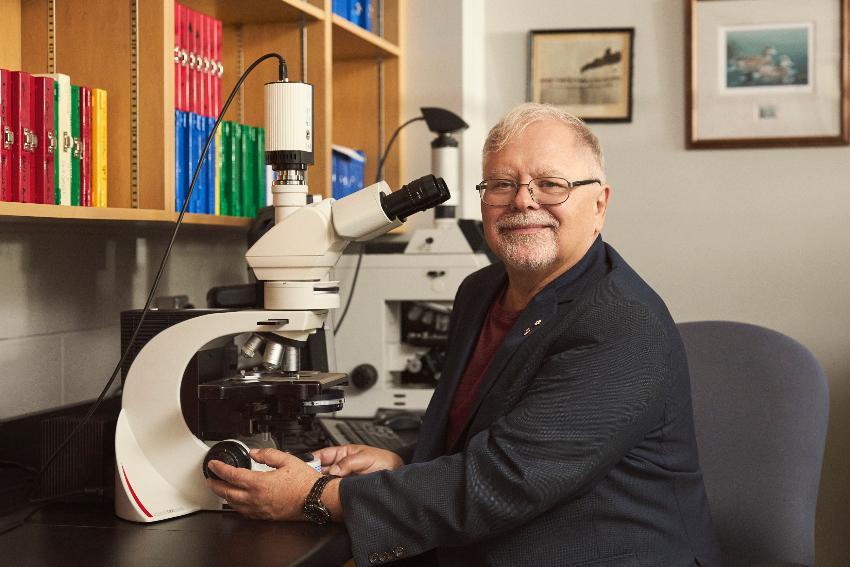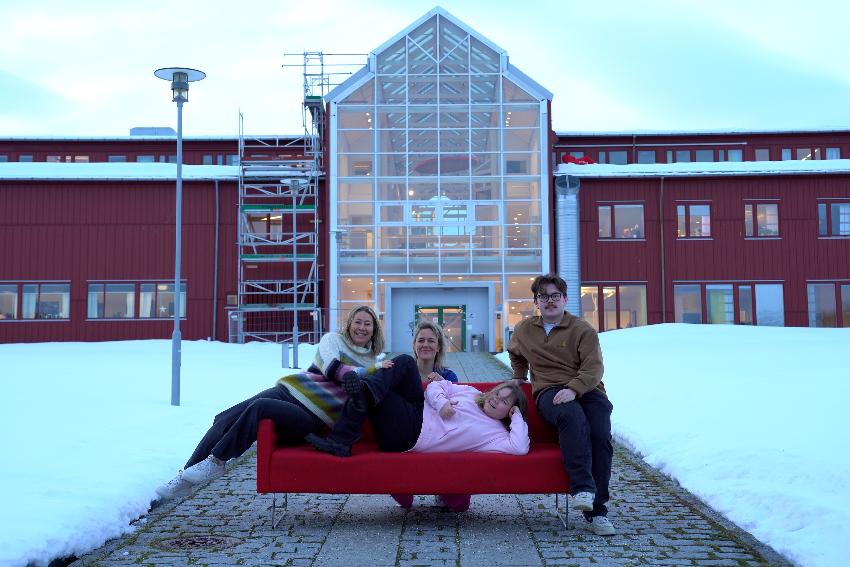“We must change to be able to decolonize”
Human geographer at UiT, Tone Huse, believes we underestimate the violence of Nordic colonialism. Through UrbTrans, she seeks to challenge prevailing notions of "benevolent" colonialism.
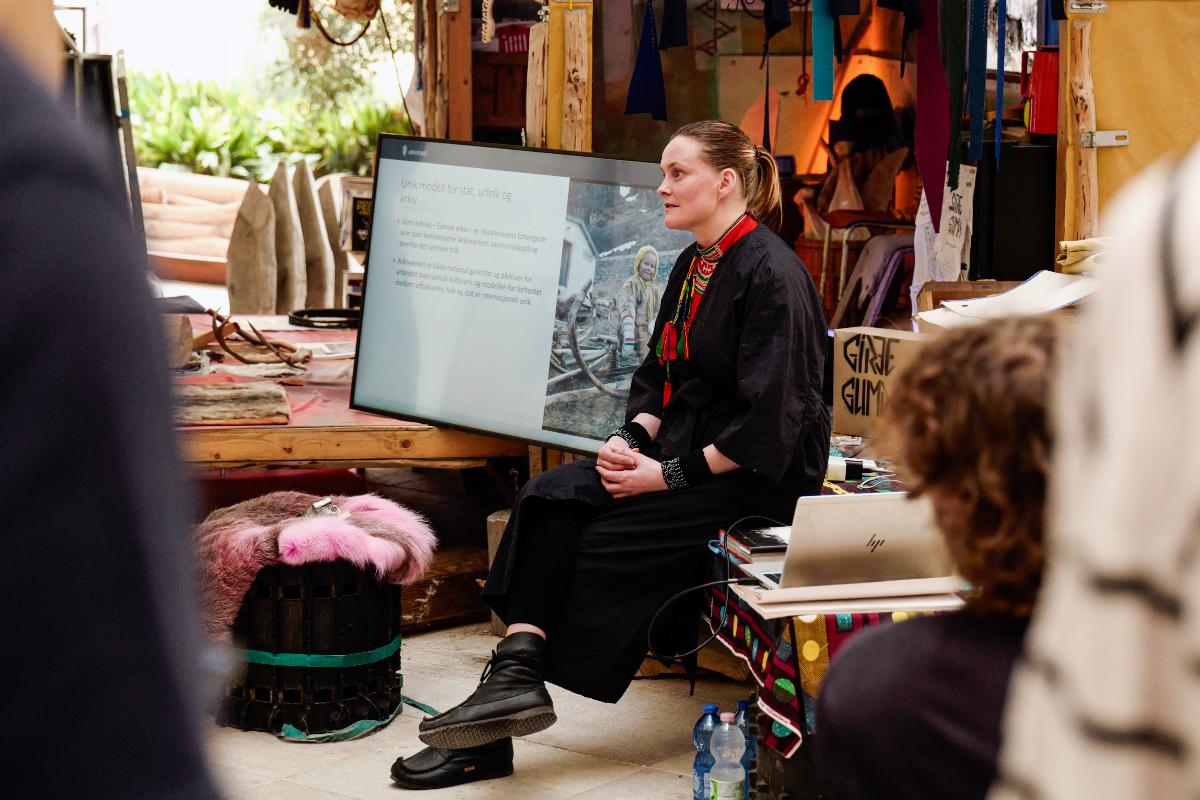
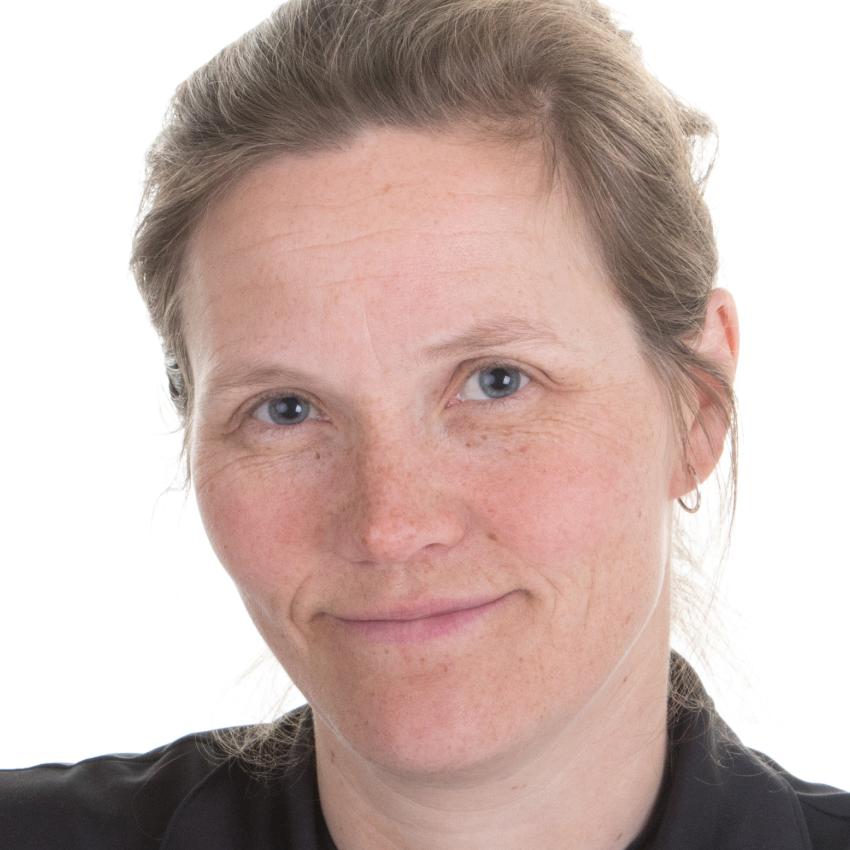
Nordic colonialism has operated in ways different from what we typically associate with other European colonialism, which we perceive as more brutal, violent, and extensive. We tend to underestimate how Nordic colonialism has also operated through abuse and domination, says Tone Huse.
She is a human geographer at UiT The Arctic University of Norway and has, in recent years, led the research project UrbTrans in Nuuk, Kalaallit Nunaat/Greenland. Huse explains that the notion of a Nordic, "benevolent" colonialism has been a recurring theme in both historical writing and public discourse across the Nordic countries.
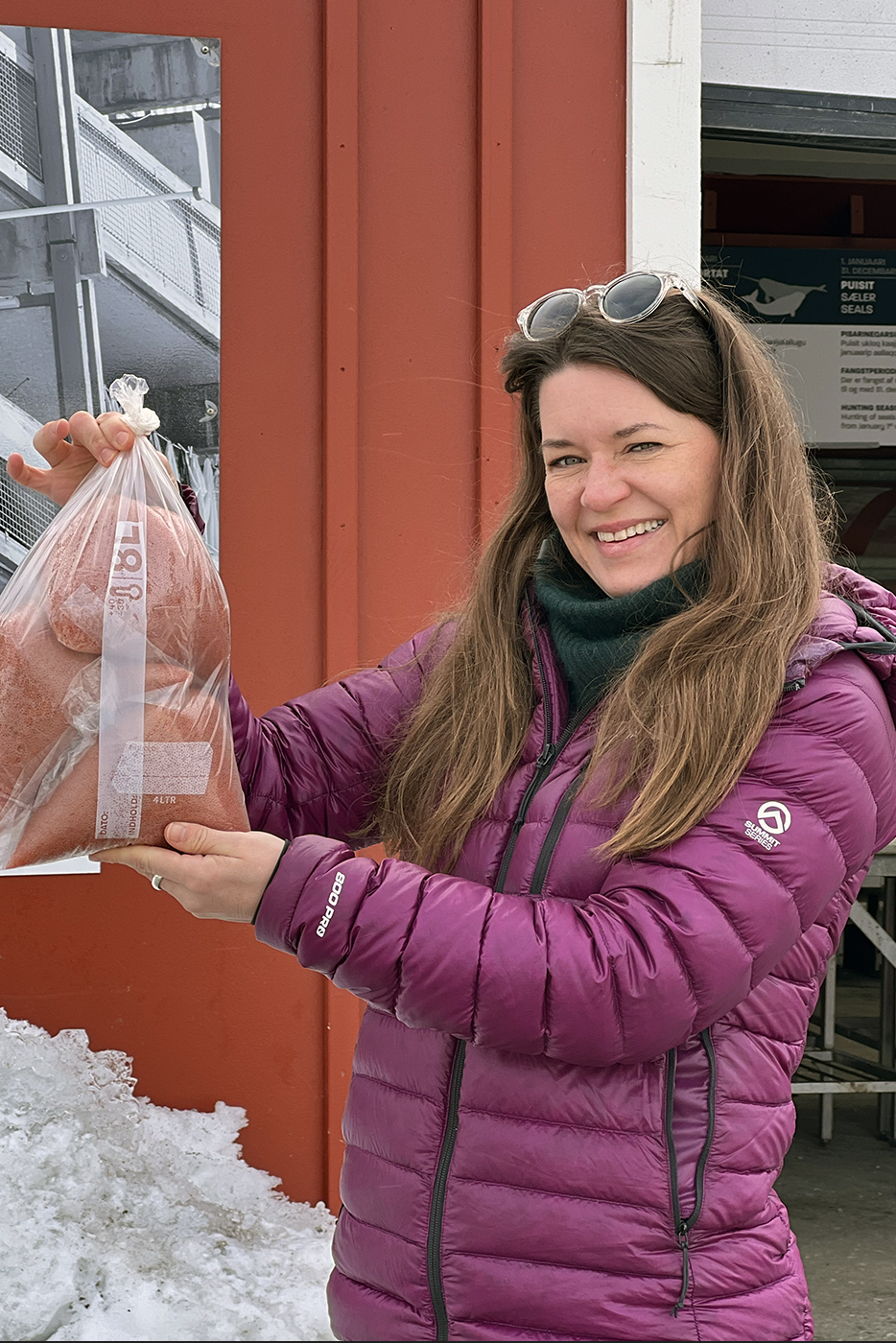
Important to build good relationships
She describes UrbTrans as a radical, interdisciplinary project with a radical, interdisciplinary research team.
"We haven’t engaged in conventional history or conventional social science, but we’ve tried to move across the historical, contemporary, and future dimensions to understand the connections between urbanism, colonialism, and decolonisation, with a focus on Nuuk," Huse explains.
For this reason, it has been important for her and the other researchers to establish good relationships and forms of collaboration in Nuuk, with the aim of ensuring that the research benefits the Kalaallit people.
"Historically, science has been part of the colonial apparatus, and that is a legacy we carry with us. Geography, for instance, has been central to colonialism, as maps were used as tools to conquer and describe the world. We cannot expect societies that have encountered science in this way over several centuries to have a positive perception of what research is," says Huse.
Taking data from Kalaallit Nunaat
She has reflected extensively on the challenges of changing research practices and ethics to ensure mutual relationships with Indigenous communities. She believes it is necessary to revise research methods. Sometimes this requires self-criticism and discomfort, but it is often crucial for advancing research ethics in a positive direction. For example, one challenge is that foreign researchers with large budgets extract data from Kalaallit Nunaat, particularly in the natural sciences, instead of ensuring the data is stored locally.
"There has been no effort to build a local database for, say, climate data collected here. The data disappears into German, French, Norwegian, and American research labs and exists only as fragmented datasets. If there were a data storage policy that granted ownership of research data to the place it was collected from, such datasets could become a global resource," says Huse, who believes that UiT also has a long way to go.
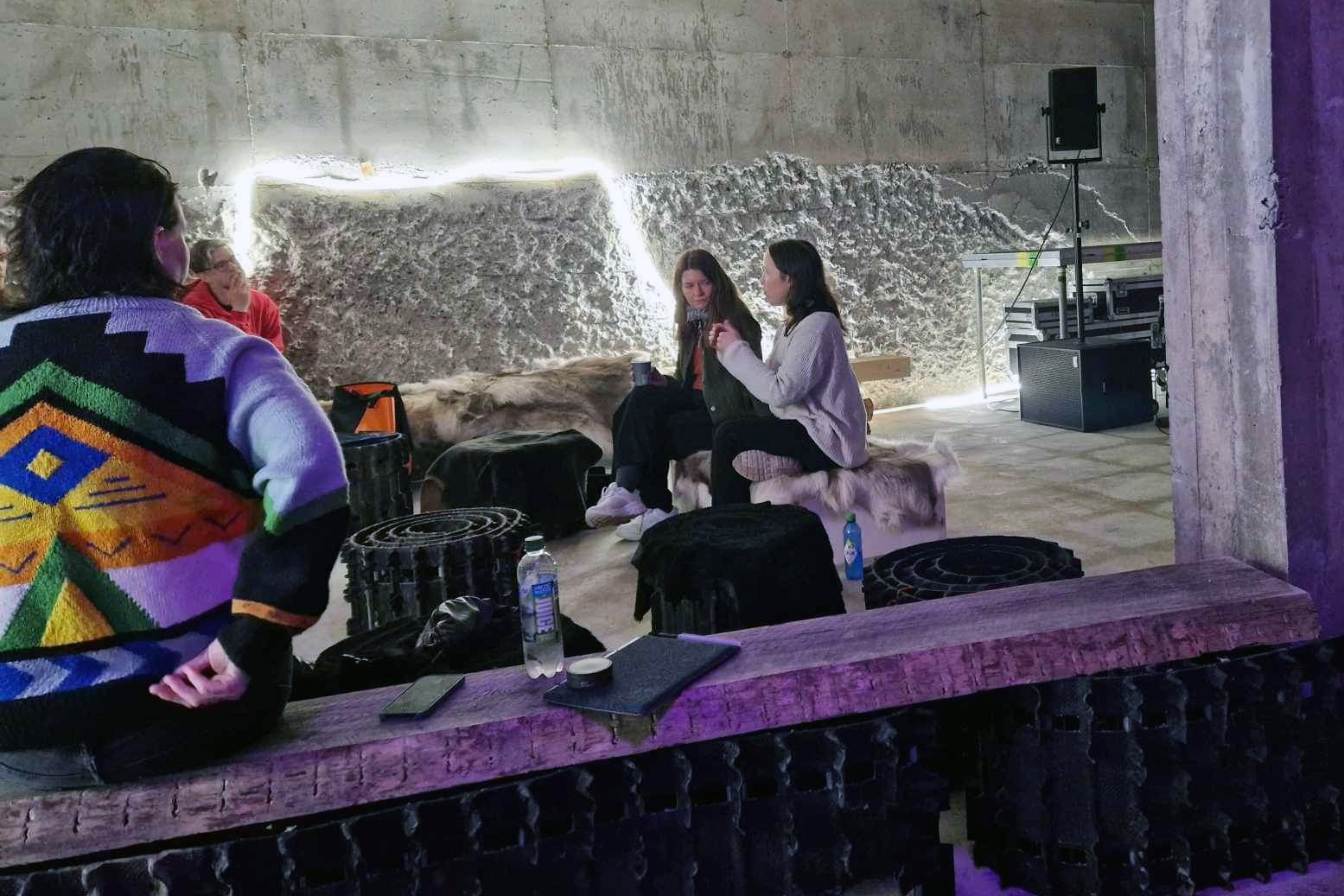
Marked by deficit narratives
She emphasises the importance of unlearning stereotypes and prejudices to understand the culture and history of Kalaallit Nunaat.
"When I’m at social gatherings and share what I work on, I’m often met with comments about alcoholism, abuse, and suicide in Kalaallit Nunaat. Instead of talking about polar bears, icebergs, hunting culture, or exciting new music, people tend to jump straight into deficit narratives, which is very typical for former colonies. Of course, these were also the narratives I carried with me when I first arrived," says Huse.
For this reason, both she and the other researchers in the project spent a lot of time at the beginning getting to know different communities in Nuuk, not just through research but also in the arts and cultural fields.
"We had initially planned to start fieldwork two months after the project began, but we received feedback from key stakeholders that we weren’t sufficiently grounded. That was feedback I’m grateful for, and we took it seriously. So, we slowed down and started by getting to know people," Huse explains.
She believes this has influenced what the researchers focus on in UrbTrans and how they approach their work:
"That’s something that has been very important and rewarding for me personally. What am I writing about? Where do I stand when I write and produce knowledge? Who am I doing it for? And who am I speaking to?"
Not just a glorified narrative
In her research, Huse also challenges the ties between the modern, social-democratic welfare state and Nordic colonialism:
"The glorified narrative of the Norwegian and Nordic model, with its successful combination of universal social benefits and capitalism, takes on a different dimension when you look at areas and communities where the Nordic welfare state has not only been a tool for delivering welfare but also for assimilation and control," she says.
She cites the widely discussed "spiral case" in Kalaallit Nunaat during the 1960s and 70s, where young Greenlandic women were forcibly fitted with contraceptive coils to prevent pregnancies, as an example of such control measures.
"This case, along with the documentary Greenland’s White Gold, has sparked more public debate about colonialism and decolonisation than we’ve seen before. But these issues have long been discussed around kitchen tables in Kalaallit Nunaat, and participating in those conversations has been important for me – to understand. It has shaped how I ask questions and what I search for in the archives," says Huse.
Must be built on mutual trust
She believes the reactions in Denmark following these two cases show that Danish society is not ready to confront the fact that it has been a colonial power that benefited from Kalaallit Nunaat.
"They haven’t reckoned with their colonial past and identity, and therefore they’re not equipped to handle what’s happening now in a constructive way," says Huse, pointing to the increasing tensions as the United States has also shown growing interest in the country.
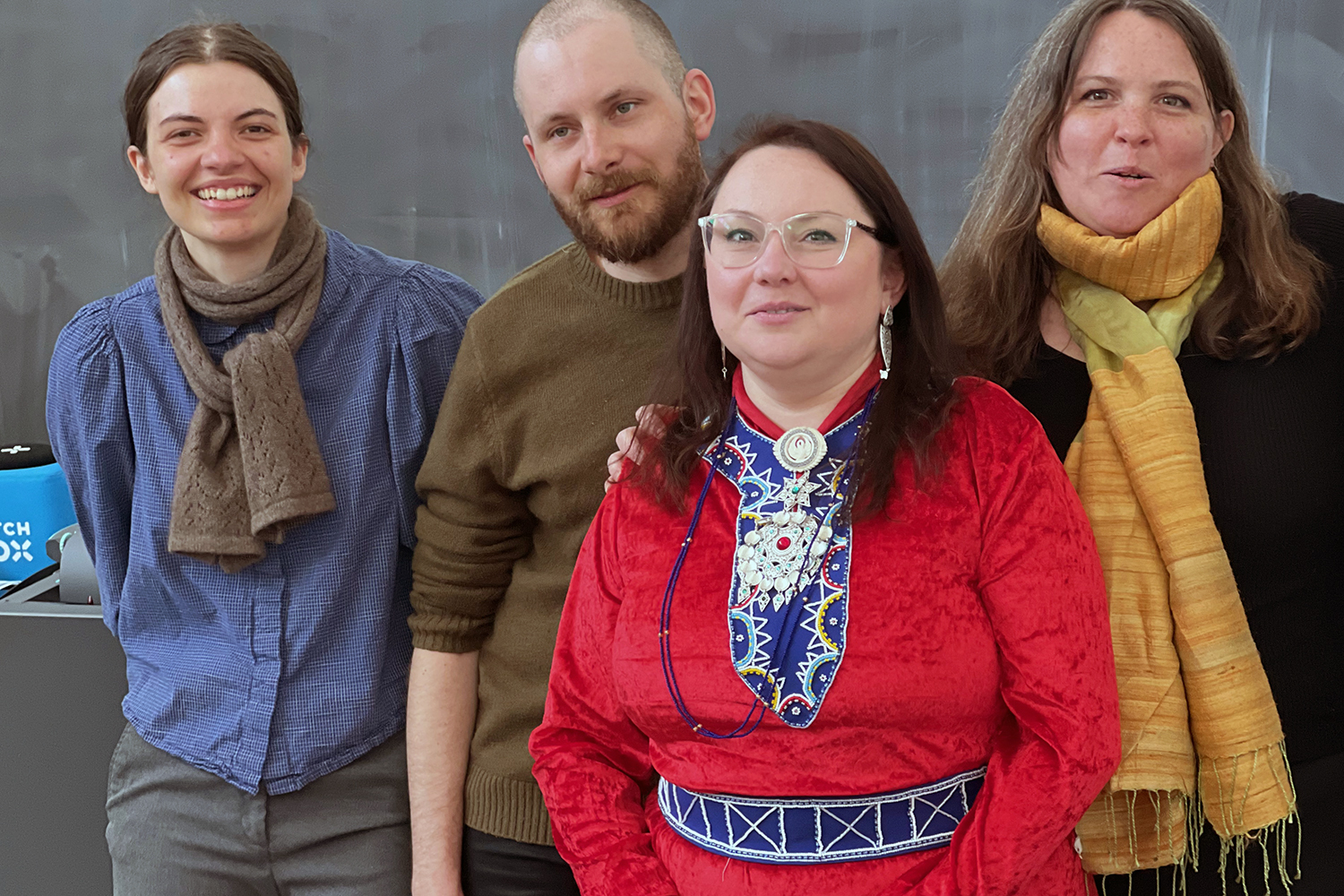
She does not wish to determine what is best for the future of Kalaallit Nunaat, but in her view, it is essential to build mutual and equitable relationships, not only in politics but also in business, research, and other sectors. This involves recognising the country’s investment needs as well as the significant economic opportunities that exist.
"Moreover, we must stop treating Kalaallit Nunaat as an affair where the Danes have priority in decision-making processes before Norway and the rest of Europe can participate. Relationships and forms of collaboration must be established that break with colonial patterns and pave the way for new paths forward," Huse argues.
Art and research hand in hand
The project concludes with two final conferences, one in Nuuk and one in Tromsø, where artworks will play a central role in the dissemination of ideas. The final conference in Tromsø will take place at Perspektivet Museum on 2–3 October, followed by the opening of Inuuteq Storch’s exhibition on 4 October. The conference in Nuuk will be held from 23–26 October during the Suialaa Arts Festival, in collaboration with Joar Nango and the Sámi architectural library Girjegumpi. Tone Huse sees art as an important method for reaching a broader audience and creating intuitive points of connection.
"Art and research can work together to communicate complex topics to a wider audience. I hope the project will contribute to a better understanding of Kalaallit Nunaat’s history and future opportunities, and that I can continue exploring the workings and nature of Nordic colonialism," she says, before concluding:
"To decolonise, we must also change ourselves. My position as a researcher has evolved significantly over the past ten years, and I now approach the research field with new expectations and without the assumptions I once held. Decolonisation challenges us to reconsider how we operate, what constitutes valuable knowledge, and on what terms it should be created. This is a journey that everyone involved in Indigenous communities must take, regardless of their position. The question is how we can realise this in practice."
About Urban Transformation in a Warming Arctic (UrbTrans):
- Funded by the Tromsø Research Foundation and the Research Council of Norway
- Aims to understand the workings and nature of Nordic colonialism, particularly in the context of Kalaallit Nunaat/Greenland
- Explores the connections between urbanism, colonialism, and decolonisation
- Adopts a radical interdisciplinary approach, involving multiple researchers and artists from diverse backgrounds
- Collaborates with the University of Greenland, the National Museum and Archives of Kalaallit Nunaat, Nuuk Local Museum, AHO (Oslo School of Architecture and Design), the University of Oslo, and Perspektivet Museum in Tromsø
- Research methods include interviews, observation, and archival studies
-
Master of Philosophy in Visual and Multimodal Anthropology
Varighet: 2 År -
Arkeologi - master
Varighet: 2 År -
Peace and Conflict Transformation - master
Varighet: 2 År -
Indigenous Studies - master
Varighet: 2 År -
Geosciences - master
Varighet: 2 År -
Biology - master
Varighet: 2 År -
Technology and Safety - master
Varighet: 2 År -
Law of the Sea - master
Varighet: 3 Semestre -
Biologi - bachelor
Varighet: 3 År -
Nordisk - årsstudium
Varighet: 1 År -
Luftfartsfag - bachelor
Varighet: 3 År -
Pedagogikk - bachelor
Varighet: 3 År -
Arkeologi - bachelor
Varighet: 3 År -
Likestilling og kjønn - årsstudium
Varighet: 1 År -
Historie - bachelor
Varighet: 3 År -
Geovitenskap- bachelor
Varighet: 3 År -
Kjemi - bachelor
Varighet: 3 År -
Samfunnssikkerhet - bachelor
Varighet: 3 År -
Samfunnssikkerhet - master
Varighet: 2 År -
Kunst - bachelor
Varighet: 3 År -
Nordsamisk fra begynnernivå - årsstudium
Varighet: 1 År -
Kunsthistorie - master
Varighet: 2 År -
Religionsvitenskap - årsstudium
Varighet: 1 År -
Romfysikk, sivilingeniør - master
Varighet: 5 År -
Klima og miljøovervåkning, sivilingeniør - master
Varighet: 5 År -
Sosialantropologi - bachelor
Varighet: 3 År -
Historie - master
Varighet: 2 År -
Filosofi - bachelor
Varighet: 3 År -
Nordsamisk på morsmålsnivå - årsstudium
Varighet: 1 År -
Anvendt fysikk og matematikk, sivilingeniør - master
Varighet: 5 År -
Barnevernsarbeid - master
Varighet: 2 År -
Forfatterstudium 2 - årsstudium
Varighet: 1 År -
Fine Art - master
Varighet: 2 År -
Barnevern - bachelor
Varighet: 3 År -
Arctic Nature Guide - one year programme
Varighet: 1 År -
Sosialt arbeid - bachelor
Varighet: 3 År -
Arktisk friluftsliv og naturguiding - bachelor
Varighet: 3 År -
Arktisk friluftsliv - årsstudium
Varighet: 1 År -
Grunnskolelærerutdanning for 1.-7. trinn - master
Varighet: 5 År -
Kunsthistorie - årsstudium
Varighet: 1 År -
Governance and Entrepreneurship in Northern and Indigenous Areas - master
Varighet: 4 År -
Vernepleie - bachelor
Varighet: 3 År -
Internasjonal beredskap - bachelor
Varighet: 3 År -
Barnevern - bachelor
Varighet: 3 År -
Vernepleie - bachelor (deltid)
Varighet: 4 År -
Landskapsarkitektur - master
Varighet: 5 År -
Grunnskolelærerutdanning for 5.-10. trinn - master
Varighet: 5 År -
Kvensk og finsk - bachelor
Varighet: 3 År -
Nordisk språk og litteratur - bachelor
Varighet: 3 År -
Russisk og russlandsstudier - bachelor
Varighet: 3 År
